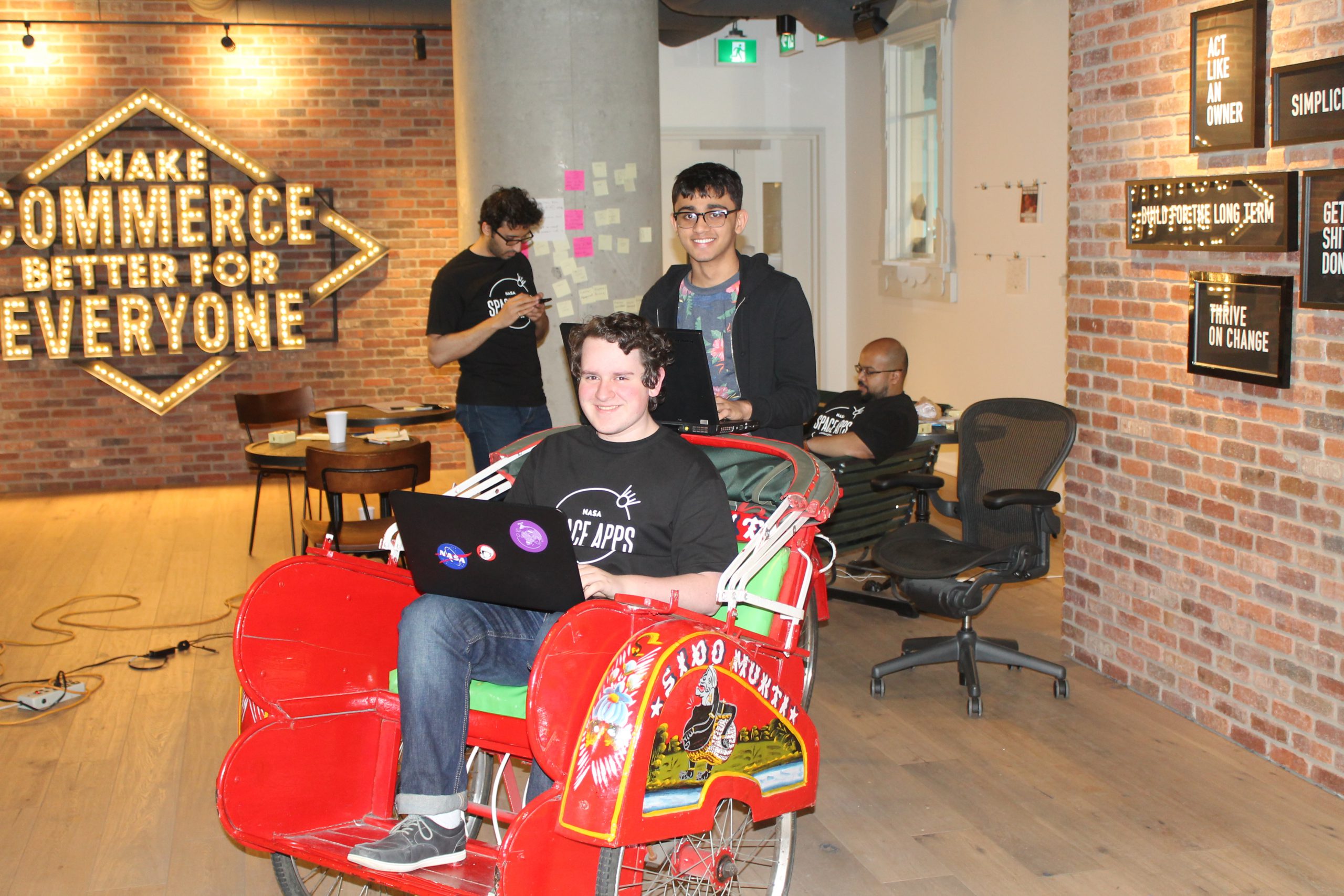Project Overview
NASA has been organizing the International Space Apps hackathon since 2012. It is now considered the world's largest hackathon. In 2019, there were nearly 30,000 participants in 230 locations in 80 countries.
Canada's space hackathon history is quite hard to pin down. Initially the events here were simply the local versions of the NASA events.
The first Ottawa hackathon began in 2017. That year, the Canadian federal government began to support our local events (led by the Canadian Space Agency).
Deploy Software Solutions is an inaugural founder and proud co-organizer of Space Apps Ottawa.
Project Goals & Objectives
NASA has stated its hackathon goals are to:
- Exemplify principles of transparency, participation and collaboration
- Utilize openly available data, supplied through NASA and CSA missions and technology
- Utilize the talent and skill of passionate volunteers from around the planet
- Advance space exploration and improve the quality of life on Earth
The Canadian Space Agency is the primary federal organization supporting Space Apps in Canada, assisted by others such as Natural Resources Canada.
Their 2019 data strategy includes community engagements, such as hackathons, to facilitate the use of data and access to science. One major goal is to raise awareness of their mandate and missions, while another is to support Canada's Open Government Initiative.
Project Results
Over a 48-hour period, participants form teams to pick and solve a posted challenge. Although this isn't enough time to produce a production-ready system, it is plenty to come up with creative solutions that explore and de-risk future development.
Businesses are frequently unaware of availability of space-based data sets, unsure how to leverage them, or it is prohibitive to proceed.
Major software failure factors are:
- unclear business requirements
- lengthy development or planning times
- lack of agile process
- Deferring risks
- Lack of end user engagement and change management
These all appear to be major risk factors currently for downstream software development. Therefore, any activity that can help reduce these failure factors is worthwhile.
Kevin Jones from PCI Geomatics wrote a great blog about a software prototype created at last year's event, "Hacking to Liberate RADARSAT-1 Data". It provides insight into how hackathons work and why they are a beneficial way to reduce software development risk, cost, and duration.
We believe space apps hackathons have positive benefits to society as well:
- Space investment is generally a GDP multiplier. Space Apps is a low-cost and low-risk way of getting outreach for space.
- They raise awareness with businesses that are not (currently) space-enabled
- They increase STEM and design skills (including in youth and under-represented groups)
- They promote job creation and growth
- They promote science and open data
- They tap into a wealth of design, development, AI, big data experience in other industries
Related
NASA International Space Apps Hackathon in Ottawa 2023
NASA International Space Apps Hackathon 2022 in Ottawa and Canada
Deploy Proudly Supports 2021 NASA International Space Apps Hackathon in Ottawa and Canada
GeoIgnite 2021: Deploy Solutions Unveil New Citizen-Focused Climate Change Software Prototype
Space Apps in Canada: 2020 and Beyond
GeoIgnite 2020: New Horizons in Space Apps Development





